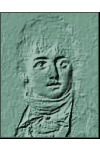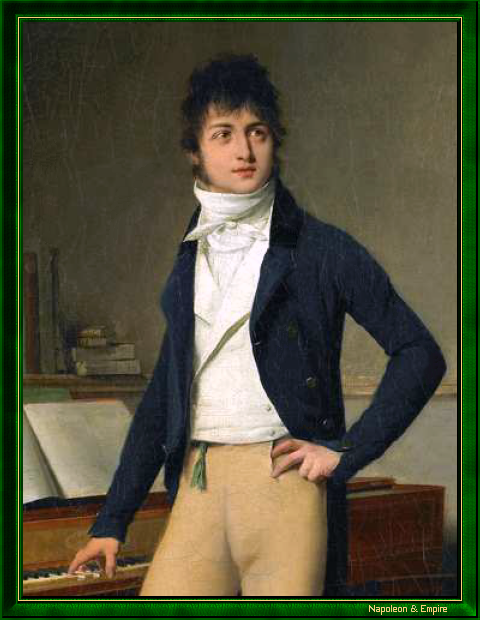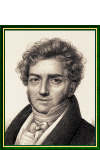François-Adrien Boieldieu
Pronunciation:

François-Adrien Boieldieu was born in Rouen on December 16, 1775, to a father who was a secretary at the archbishop's palace. He began his career as a composer at a very early age, with the comic opera La Fille coupable, which he successfully performed in his native city in 1793. He followed this up two years later with Rosalie et Mirza, then left for Paris.
His popularity was immediate. In 1797, he staged no less than three comic operas of his own composition: La Famille suisse, L'Heureuse nouvelle and Le Pari, which did not prevent him from seeking to perfect his craft with Luigi Cherubini. The following year, he scored another triumph with La Dot de Suzette, followed by Zoraïme and Zulnare. This was followed by Le Calife de Bagdad in 1800 and Ma Tante Aurore in 1803. Boieldieu's instrumental output, already scarce (a few pieces and concertos for piano and harp), had almost completely dried up.
Boieldieu was then engaged by Tsar Alexander I as court composer, and stayed in St. Petersburg from 1804 to 1811. A dozen fine works were added to his catalog, including Les Voitures versées and Rien de trop.
On his return to Paris, he again won public acclaim with Jean de Paris (1812) and Le Nouveau seigneur du village (1813).
Political changes did not affect his reputation. He succeeded Etienne Méhul as professor of composition at the Paris Conservatoire in 1817. His career culminated in 1825 with the premiere of his masterpiece, La Dame blanche (libretto by Eugène Scribe after Walter Scott), which remained in the repertoire in France and Germany for many years, and was a high point of both French opéra-comique and the fairy-tale romanticism of the 1820s, of which Carl-Maria von Weber was another illustrious exponent.
Boieldieu's simple, expressive music made him the champion of French taste in the face of Rossinian extravagance.
His first failure was the Two Nights, a work in which he sought to vary his style. Richard Wagner praised his style and drew inspiration from it in a page from Lohengrin. Boieldieu then retired to the countryside for treatment. He suffered from tubercular laryngitis, a condition that gradually caused him to lose the ability to speak.
His final years were overshadowed by the bankruptcy of the Paris Opera and the July Revolution, which led to his ruin. To save this national hero from destitution, the government of Adolphe Thiers granted him a pension of 6,000 francs.
He died on October 8, 1834 in Varennes-Jarcy, Seine-et-Oise. France held a national funeral for him at Les Invalides. His heart is preserved in the monumental Rouen cemetery , while his body is buried in the Père-Lachaise cemetery in Paris (11th division).
"François-Adrien Boieldieu" by Louis Léopold Boilly (La Bassée 1761 - Paris 1845).

His son Adrien Boieldieu was also a composer.
FreemasonryBoieldieu was initiated into the lodgeLes Arts et l'Amitiéof the Grand Orient de France in Paris. He was then a member of the lodge
La Palestineand an honorary member of the lodge
Les Amis réunis.
On Place du Gaillardbois in Rouen, a bronze statue honors the memory of the native composer.
Other portraits

"François-Adrien Boieldieu". 19th century engraving